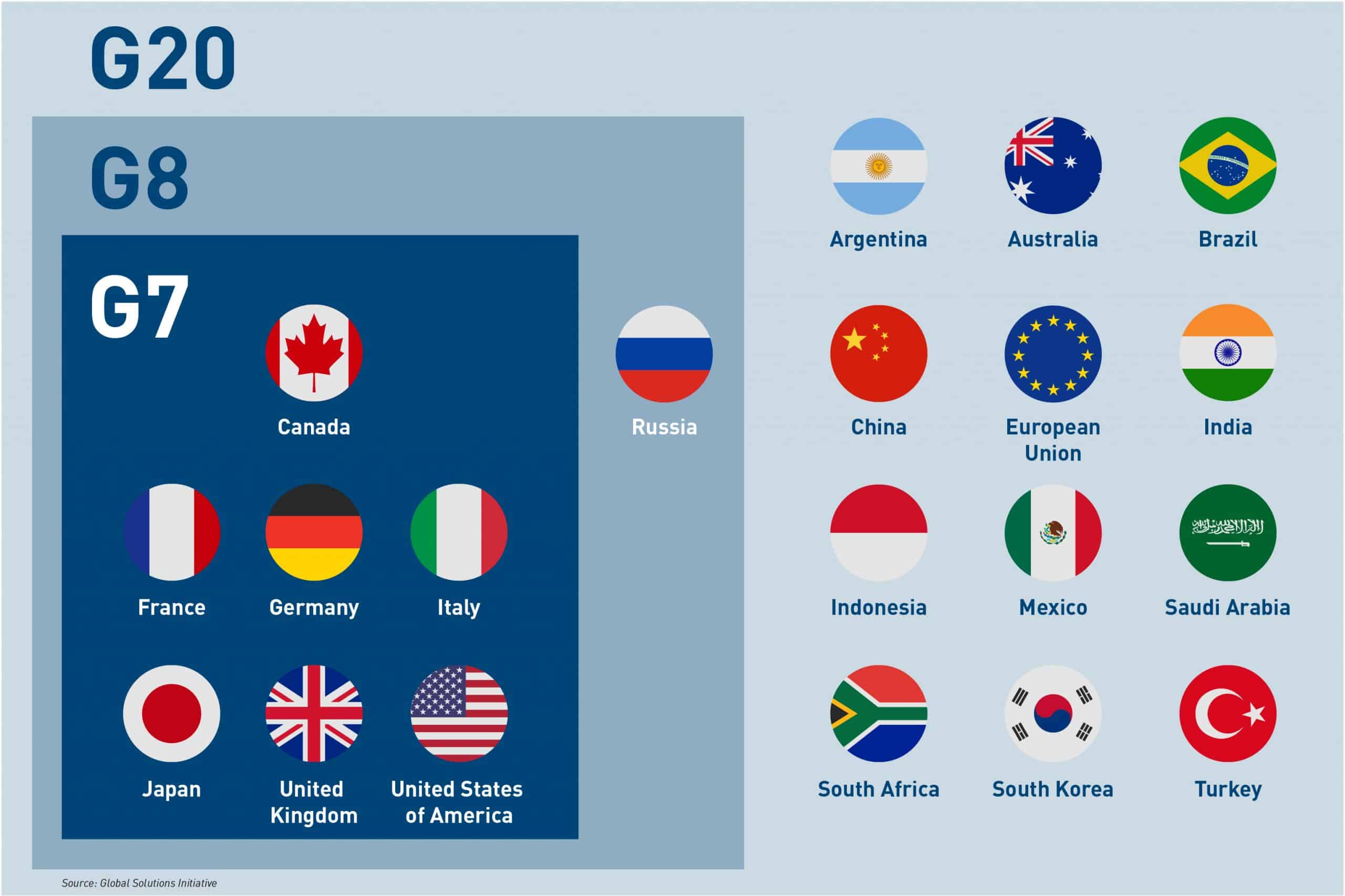Context
-
The 48th G7 Summit held at Germany has proposed to set up an international climate club.
- The G7, a group of developed nations that gets together every year to discuss global challenges, is made up of the US, the UK, Canada, France, Germany, Italy and Japan.
About Climate Club G7
- The Climate Club, as an intergovernmental forum of high ambition, will be inclusive in nature and open to countries that are committed to the full implementation of the Paris Agreement and the decisions thereunder, in particular the Glasgow Climate Pact, and to accelerate their action to this end.

- The Climate Club “open and inclusive in nature” to those committed to follow the 2015 Paris climate agreement by accelerating climate action and increasing ambition, with a particular focus on the industry sector, thereby addressing risks of carbon leakage for emission-intensive goods, while complying with international rules.
- The concept of a climate club was developed by Yale economist William Nordhaus in 2015 and has since gained popularity in policy circles.
- Mr. Nordhaus also won the 2018 Nobel Prize in economics for his work on climate change.
- The club will be open to countries committed to implementing the 2015 Paris Climate Accord which aims to limit global warming to below 2, preferably to 1.5 degrees Celsius, compared to pre-industrial levels, as per the United Nations.
- As per the statement, the climate club will be built on three pillars —
- focus on advancing transparent policies to achieve climate neutrality (reducing all greenhouse gases as much as possible),
- transforming industries to accelerate decarbonisation, and
- facilitating partnerships and cooperation to encourage climate action and unlock socio-economic benefits of climate cooperation.
What about China?
- The world’s biggest emitter of greenhouse gas isn’t likely to join straightaway. But if it wants to export its wares to the rest of the world without having climate tariffs slapped on them, it may have to join.
- Expect Beijing to be sharply critical of the idea, just as it has been of the EU’s planned “carbon border adjustment mechanism” — which also entails tariffs for polluters who don’t play by the bloc’s rules.
Visit Abhiyan PEDIA (One of the Most Followed / Recommended) for UPSC Revisions: Click Here
IAS Abhiyan is now on Telegram: Click on the Below link to Join our Channels to stay Updated
IAS Abhiyan Official: Click Here to Join
For UPSC Mains Value Edition (Facts, Quotes, Best Practices, Case Studies): Click Here to Join
